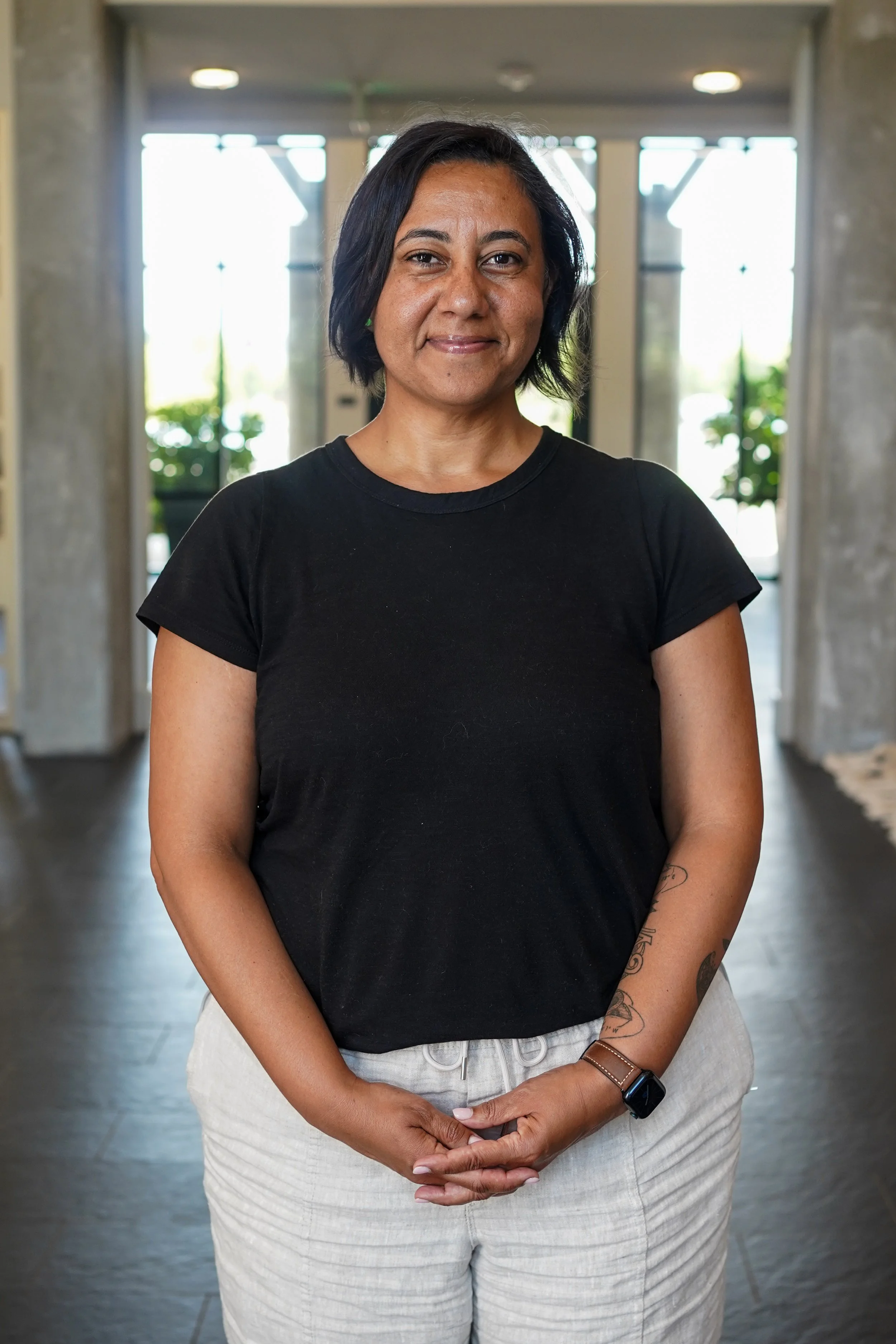
At Karbona Group Practice, our roots run deep. Our name, Karbona, honors our founder Dr. Rasha Mohamed’s family heritage, grounding our practice in authenticity and trust. Our logo, the lotus flower, is a personal symbol of resilience – it grows beautifully from challenging beginnings, just as we believe everyone can. It also represents renewal and the ongoing journey of transformation.
We are built on the belief that true growth comes from genuine connection and an inclusive community. That's why we intentionally build a team that reflects diverse backgrounds, ensuring everyone feels seen and supported.
We invite you to connect with your inner strength, navigate life's challenges, and discover your own path to profound well-being in a space that celebrates your unique journey.
our story
meet the team
dr. rasha mohamed, founder
Licensed Clinical Mental Health Counselor, PhD, LCMHC
My work benefits those who are interested in an approach that draws on an eclectic mix of modalities. Over my career, I’ve developed an expansive approach to counseling services, rooted in cultural sensitivity. My treatment model is a reminder that you are the center of your own world.
I can help address the emotional parts of life with a focus on returning to your own “knowing”. This work aligns the various arenas of life (personal, professional, relationships, parenting, etc.). The work we will do together is focused on solutions, tools, and practical skills to apply.
This work aims to help you remember your true self and to find your way back to listening to your inner voice and practicing compassion for Self-first. Practicing this consistently will result in feeling good more of the time.
getting started with us
For new patients, there is an easy three-step process to get started with us. This helps us ensure there is a solid relationship between a counselor and patient, which is pivotal to the success of any treatment plan. NOTE: We are currently only accepting patients residing in North Carolina and South Carolina.
STEP 1:
book a consultation
The first step is to book a 15-minute free consultation.
This is an important first step for patients who are new to counseling to ensure that we are a good match.
STEP 2:
free consultation
During this time, we will discuss your reasons for obtaining services, our style of therapy, and expectations/goal setting for your treatment. By the end of the call, we will determine if we will move forward with establishing a working relationship.
STEP 3:
Your first session
You will receive information to set up your patient profile and schedule your first session. During our first session, we’ll conduct a diagnostic assessment and intake to get you started with your treatment.
PAYMENT POLICIES
INSURANCE
NORTH CAROLINA and SOUTH CAROLINA
NORTH CAROLINA
Fee Structure
Initial Session: $185
Individual:
45-minute Session: $115
53-minute Session: $145
Couples:
53-minute Session: $185
OUT-OF-POCKET
NORTH CAROLINA and SOUTH CAROLINA
FEE STRUCTURE
We provide a sliding scale for cash clients or those who don’t wish to use insurance.
Fees for cash clients are based on individual needs.
HSA accounts are available to cover fees for services
We supply monthly superbills for all out-of-pocket patients.
Resources






Grief is a natural response to loss, particularly the death of a loved one. While grief is not a mental disorder, it can be an intensely painful experience that affects emotional, physical, cognitive, and spiritual well-being. Understanding the difference between normal grief and prolonged grief disorder is important for seeking appropriate support.
Grief is a universal human experience that occurs in response to loss, most commonly the death of someone close. The DSM-5 distinguishes between normal bereavement and Prolonged Grief Disorder (previously called Complicated Grief), which is recognized when grief becomes persistent and significantly impairs functioning.
Normal Grief Response
Normal grief can involve intense sadness, yearning, preoccupation with the deceased, crying, and difficulty accepting the loss. People may experience waves of grief, changes in appetite and sleep, withdrawal from activities, and difficulty concentrating. These responses typically lessen in intensity over time, though grief is not a linear process, and individuals may move back and forth through different experiences.
Prolonged Grief Disorder
According to the DSM-5, Prolonged Grief Disorder is diagnosed when the following criteria are met:
The death of a close person occurred at least 12 months ago (6 months for children and adolescents).
Since the death, the individual experiences intense yearning/longing for the deceased or preoccupation with thoughts or memories of the deceased nearly every day.
The grief response includes at least three of the following symptoms nearly every day for at least the last month:
Identity disruption (feeling part of oneself has died).
Marked sense of disbelief about the death.
Avoidance of reminders of the loss.
Intense emotional pain related to the death.
Difficulty reintegrating into life (with relationships, interests, planning for the future).
Emotional numbness or detachment.
Feeling that life is meaningless.
Intense loneliness.
The grief response causes clinically significant distress or impairment in functioning and is not better explained by cultural norms.
Support and Treatment
While grief is a natural process, support can be beneficial. Grief counseling, support groups, and psychotherapy can help individuals process their loss, find meaning, and gradually adapt to life without their loved one. For prolonged grief disorder, evidence-based treatments such as complicated grief therapy have shown effectiveness in helping individuals heal while maintaining their connection to the deceased.
DISCLAIMER
These descriptions are for educational purposes. A proper diagnosis should only be made by a qualified mental health professional through a comprehensive evaluation. If you or someone you know is experiencing these symptoms, please seek professional help.